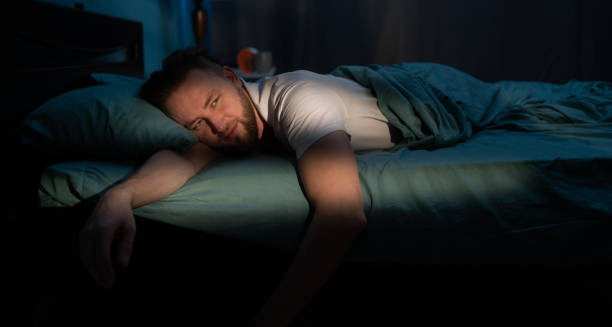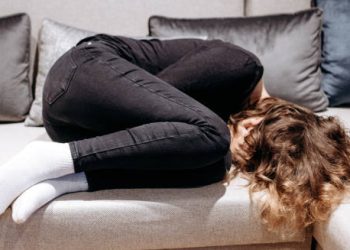Insomnia is a complex condition with many possible causes, including biological, psychological, environmental, and behavioural factors. Understanding the causes of insomnia is key to diagnosis and treatment. Usually, it is not caused by just one thing. Instead, several issues combine to stop the body from falling or staying asleep. Short-term insomnia may happen due to temporary stress or lifestyle changes, while long-term insomnia often has deeper causes.
Stress and Mental Health
The most common cause of insomnia is stress. Daily worries about work, school, money, or relationships can cause the mind to race at night. This mental alertness makes it hard to relax and fall asleep. Even after the stress passes, the body may stay on high alert at bedtime, keeping sleep problems going. People prone to anxiety or perfectionism often find stress triggers insomnia.
Mental health disorders also play a big role. Anxiety, including generalised anxiety disorder (GAD), panic disorder, and PTSD, often cause sleep problems. People with anxiety struggle to stop worrying enough to sleep, and their sleep is usually light and broken. Depression can cause early waking or too much sleep, both linked to imbalanced sleep patterns. Sometimes insomnia causes mental health issues, or mental health problems cause insomnia—they often worsen each other.
Medical Conditions
Medical problems frequently cause insomnia. Chronic pain from arthritis, fibromyalgia, migraines, or back pain makes it hard to get comfortable. Breathing problems like asthma or COPD can cause coughing or shortness of breath at night. Acid reflux, heart failure, and brain diseases such as Parkinson’s or Alzheimer’s also disturb sleep. Other less obvious issues, like overactive bladder, thyroid problems, or allergies, may cause frequent awakenings or discomfort.
Medications and Substances
Many medications affect sleep. Antidepressants, corticosteroids, beta-blockers, and some blood pressure drugs can interfere with sleep. Stimulants for ADHD delay falling asleep. Caffeine and nicotine also keep people awake. Alcohol may help people fall asleep at first, but it breaks up sleep later in the night and lowers sleep quality.
Poor Sleep Habits
Bad sleep habits often cause insomnia. Irregular bedtimes, doing exciting activities before bed, or using screens in bed can hurt sleep. Blue light from phones or computers stops the body from making melatonin, the sleep hormone. Sleeping and waking at different times daily, napping too much, or using the bedroom for work or TV weakens the brain’s link between the bedroom and sleep, making it harder to fall asleep.
Circadian Rhythm Issues
Disruptions to the body’s internal clock also cause insomnia. This clock controls when we feel sleepy or awake and depends on light and meal times. Shift work, jet lag, and irregular sleep schedules often cause insomnia. Shift workers sleep during the day and work at night, which goes against their natural rhythm. Teens and young adults sometimes have delayed sleep phase syndrome, meaning they feel like sleeping and waking later than usual, causing sleep loss on school or workdays.
Hormonal Changes
Hormone shifts affect sleep, especially in women. Menstruation, pregnancy, and menopause bring changes that disrupt rest. Hot flashes and night sweats in menopause cause repeated waking. Pregnancy brings discomfort from weight gain, pain, or baby movements. Hormones also change brain chemicals that control sleep, making it harder to fall or stay asleep.
Environmental Factors
The sleep environment impacts insomnia more than many realise. Noise, light, temperature, and an uncomfortable bed all reduce sleep quality. City dwellers face noise, street lights, and temperature changes from heating or air conditioning. Creating a quiet, dark, and cool bedroom helps promote good sleep.
Sleep-Related Disorders
Some disorders mimic insomnia. Restless legs syndrome (RLS) causes an urge to move legs with unpleasant feelings at night. Obstructive sleep apnea (OSA) leads to breathing stops during sleep, causing repeated waking without memory of it. Treating these problems is key to restoring good sleep.
Age and Genetics
Sleep changes with age. Older adults sleep lighter, wake earlier, and have less deep sleep. They also take more medications and often have medical issues, making sleep worse. While some sleep decline is normal with age, persistent insomnia needs attention.
Genetics can also play a role. Some people inherit a higher chance of insomnia. Though genes alone don’t cause it, they combine with lifestyle and environment to increase risk.
Summary
In summary, insomnia has many causes, and each person’s reasons are different. Stress, mental health, medical issues, habits, environment, and biology all affect sleep. Careful evaluation of these factors helps create the best treatment plan. By tackling the root causes, people with insomnia can regain control of their sleep and enjoy a healthier, more energized life.


